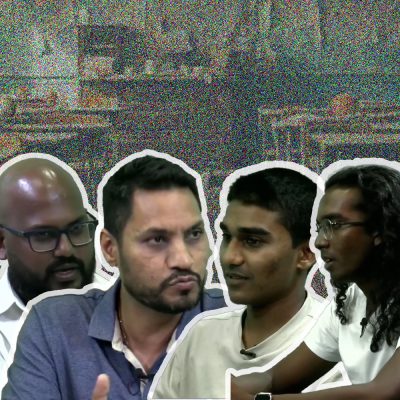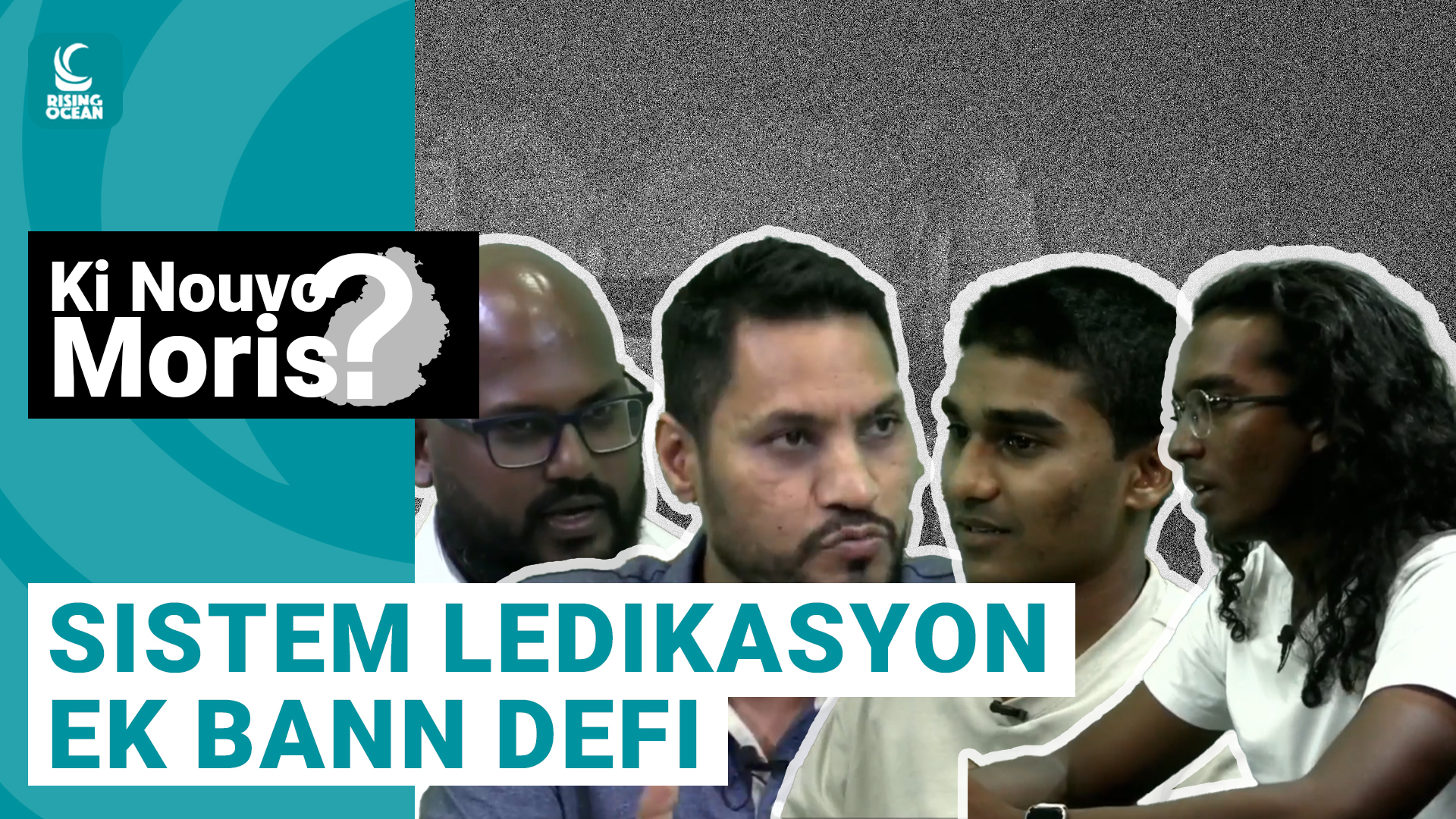After the announcement of the laureates, the results of the Higher School Certificate (HSC) revealed a success rate of 84.4% for the 2023 class where 7528 candidates for the Republic of Mauritius and 81.24% for Rodrigues (244 students). The education system in Mauritius has seen a lot of criticism over the years as some denounce an elitist system. To talk more about the subject, the ki nouvo moris show on Monday, February 12, 2024, had as guest Kugan Parapen, former laureate and member of the national committee of Rezistans ek Alternativ, Tejvin Woodun and Milind Sharma Hauzaree, both students. The conversation was led by Ashvin Gudday.
Analysis of the Laureate’ system in Mauritius.
The machinery of creating laureate dates back from several years. As a matter of fact, the education system of Mauritius emphasizes a learning model that favors the intellect to the detriment of subjects such as art, music, physical education and others. Indeed, it is competitiveness among students that has been encouraged for decades.
Certainly, there is a need to take a more comprehensive approach to the mode of teaching and do it in a format that will integrate all aspects of learning such as academic, social, and emotional learning, something that the current system does not do. The race to become a laureate and receive a scholarship from the state is extremely hard for students. Undeniably, this system involves hours of hard work per week, whether at school or after school hours. Of course, the mental health of students is sometimes neglected in this model because with the private lessons and long revision sessions, some feel overwhelmed.
For Tejvin Woodun, the laureate’ system should be revised because there is no real transparency on the criterion of the selection of those who will be laureate.
“We do not know if there are factors that influence the nomination of the laureates, and this is a big obstacle for those who wish to participate in this competition.”
For Milind Sharma Hauzaree, the problem is not really about the system established to become laureates but rather with the lack of patriotism of those who get a state scholarship. He believes that the reason why the scholarship recipients do not return to the country is because they do not have the interest of the country at heart, and it is this lack of patriotism that is to be deplored. The major problem with the laureate system according to the student is that it is a state “funded brain drains”.
Does the educative model of Mauritius respond to the reality of the population?
The education system in the Republic of Mauritius is fraught with uncertainty. With the various reforms made by the different governments in power during these last years, such as the abolition of the Certificate of Primary Education (CPE) and replacing it with the Primary School Achievement Certificate (PSAC) and the introduction of Nine-Year Schooling, parents feel overwhelmed because they do not know with which model of education their children will leave the school benches. Indeed, the first step of these reforms was to minimize the pressure and competitiveness among the students, except at the end of the PSAC, there is always the rat race because the students have to face the exams.
“There is a real problem with public education in Mauritius. There is too much uncertainty because the system keeps changing. Many parents turn to the private education system that offers this certainty.”
Indeed, the system is more academically oriented, and students do not have the opportunity to think for themselves and thus develop a critical mind because the teaching mode is made to follow the established curriculum. Kugan Parapen thinks it’s a shame, because the educational model is squeezing people to « become robots of the capitalist system. »
The Mauritian education system does not correspond to the reality of the country because since the child sets foot in schools, there is a kind of disconnection with history. The history of Mauritius needs to be taught to students as many of them do not know about the uprisings that contributed to the country’s advancement, says Tejvin Woodun.
« The education provided in Mauritius is old compared to the speed at which the world is changing. »
With modernization, many believe that ecological education should be included in schools because students today do not know the issues of climate change. Indeed, it should be instilled in schools so that from an early age, children can become aware of the climate issues that threaten the way of life of those living on the islands. Undeniably, being an island, Mauritius should have had topics that deal with food self-sufficiency but also how to manage and exploit our exclusive economic zone. The lack of such subjects in schools demonstrates the inability of the Mauritian education system to meet the needs of its population, highlights Tejvin Woodun.
In conclusion, the Mauritian education system, like almost everywhere else, has strengths and weaknesses. It is true that uncertainty reigns among parents, students and teachers, especially with the various reforms carried out during the last 20 years. To meet the needs of the population, the education system must innovate and offer a more holistic mode of teaching but also diversify itself in terms of subject offered at primary and secondary level.
Watch full debate here:


